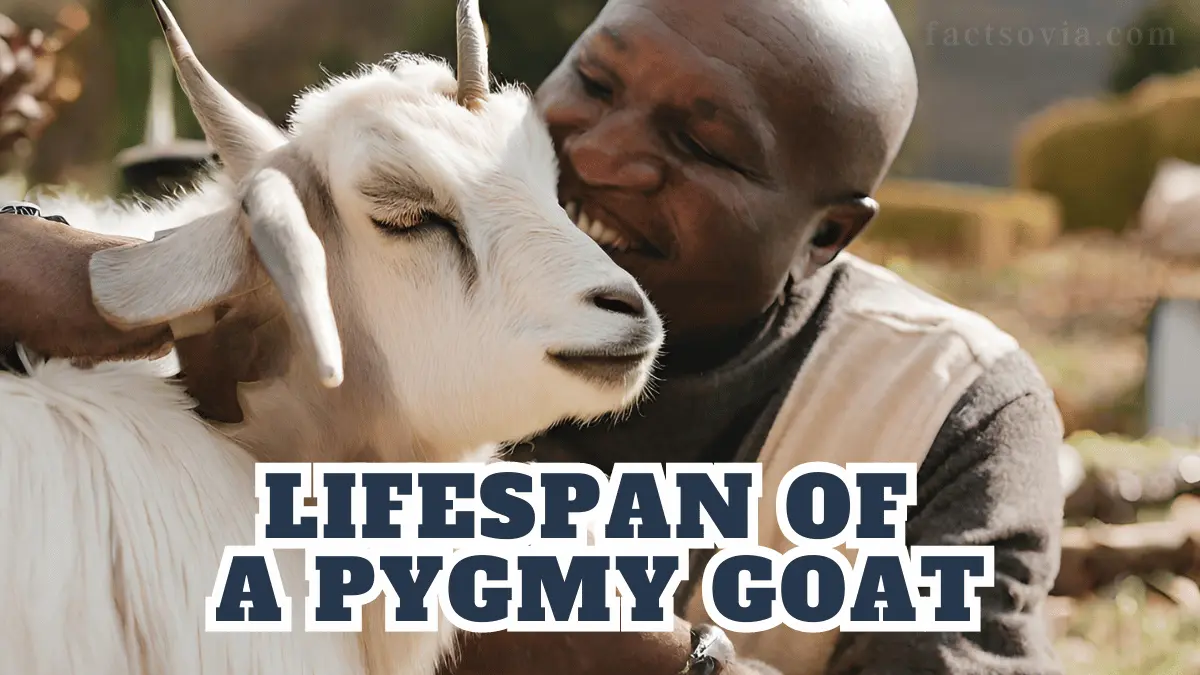We use affiliate links to run our site. When you buy through links on our site, we may earn an affiliate commission, without any added cost to you. Learn more
Pygmy goats are absolutely adorable! They’re a breed of miniature domestic goats that can bring so much joy as pets. With their small size, friendly nature, and low-maintenance needs, it’s no wonder they’ve become such beloved companion animals. These little cuties can actually live surprisingly long lives given their petite frames.
In this article, we’ll explore the average lifespan of pygmy goats and share some valuable tips on how to ensure they stay happy and thriving for many years ahead. So, let’s dive in and learn more about these lovable creatures!
The Average Lifespan of a Pygmy Goat
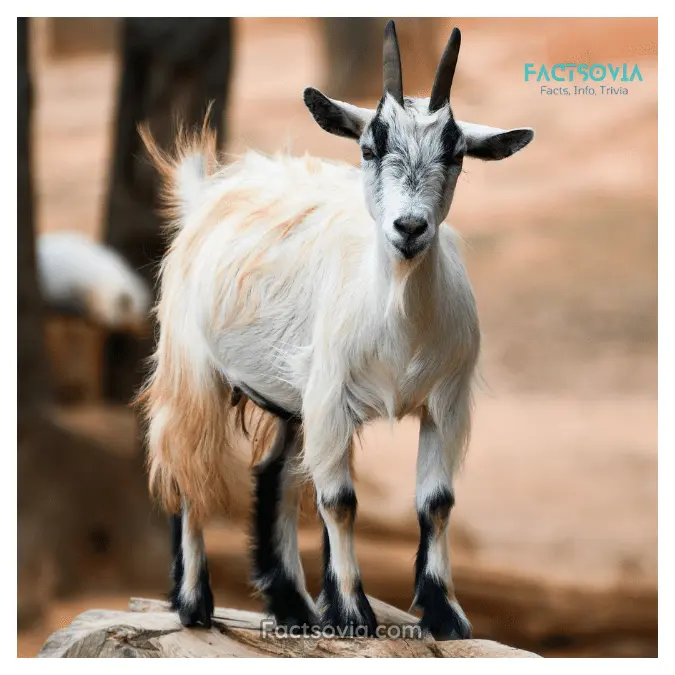
The average lifespan of pygmy goats ranges from 15-18 years. However, with attentive care and a bit of luck, they can live even longer. The current record for the longest living pygmy goat, is 22 years and 5 months!
Here’s a quick overview of their lifespan stages:
- Newborn to 1 year – kid
- 1-3 years old – yearling
- 3-10 years old – adult
- 10+ years old – senior
The majority of a pygmy goat’s life is spent in the adult stage from ages 3-10. As senior adults over age 10, they gradually slow down but can still lead active lives into their late teens or sometimes early 20s.
Factors That Influence Lifespan
Many different factors can affect how long a pygmy goat lives. Here are some of the key considerations:
Genetics
Genetics plays a fundamental role in determining the lifespan potential of individual pygmy goats. Some bloodlines are hardier by nature and genetically predisposed to longevity.
| Bloodline | Average Lifespan |
|---|---|
| Nigerian Dwarf | 15-18 years |
| Kinder | 16-20 years |
| Pygora | 17-21 years |
Choosing breeding stock from long-lived bloodlines increases the likelihood of hardy offspring with good longevity genes.
Nutrition
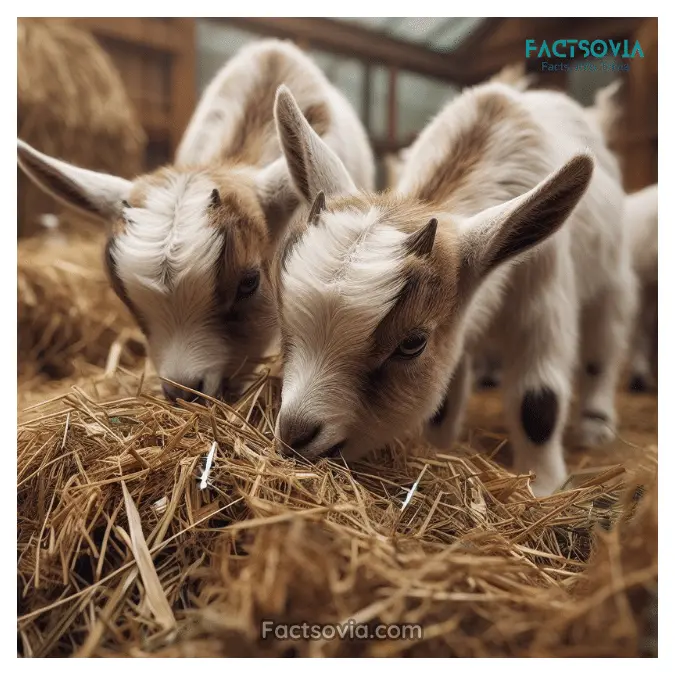
Proper nutrition provides the building blocks for health and immunity. The digestive system of pygmy goats is optimized for high-fiber, low-concentrate diets.
Feeding hay and browsing while limiting grains supports good rumen function and digestion over a lifetime. Make sure that fresh water and loose mineral supplements are available at all times.
Housing
Goat housing greatly impacts health and longevity. Key considerations include:
- Clean, dry bedding
- Good ventilation
- Sunlight exposure
- Adequate space per goat
- Seasonal shelter from temperature extremes
Ideal housing reduces the risk of respiratory illness, parasites, and stress that could compromise lifespan.
Parasite Control
Gastrointestinal parasites can cause blood loss, anemia, and wasting. A proactive deworming protocol prevents significant parasitic burdens.
Rotating dewormer classes helps prevent parasite resistance. Fecal testing identifies load levels for selective treatment. Keeping housing clean also aids control.
Hoof Care
Overgrown hooves limit mobility and cause pain. Regular trimming maintains proper foot alignment for lifelong comfort.
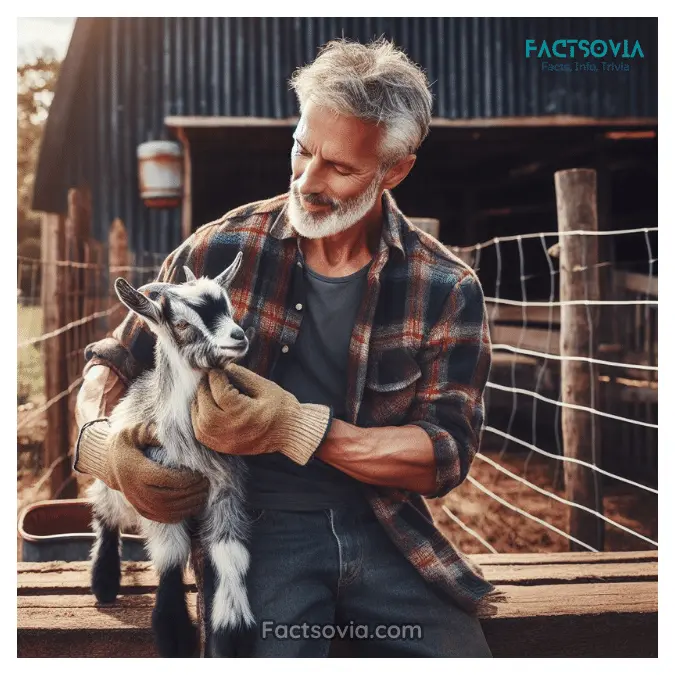
Disease Prevention
Preventative care is far easier than treatment. Key disease prevention practices include:
- Annual vaccines against common pathogens
- Quarantining new arrivals
- Isolating sick animals
- Sanitizing housing between groups
- Prompt veterinary care when illness occurs
Avoiding exposure and catching issues early optimizes recovery and longevity.
Breeding Age
Breeding too young or too old does have higher risks of complications. Following responsible breeding guidelines gives mother goats the best odds of safe pregnancies and healthy kids.
- First breeding between 10-12 months old once mature size is reached
- Allow 1-2 kid-free years between pregnancies
- Gradually retire from breeding over the age of 7-9 years
Socialization
Goats are herd animals that fare better in bonded pairs or groups. Isolation causes stress and depression that negatively affects health.
Caring for Pygmy Goats Across Life Stages
Caring for pygmy goats properly during each phase of life gives them the best chance at meeting their genetic lifespan potential. Here are some age-specific considerations:
Newborn Kids
Kids are very susceptible to illness and chilling. Ensure they receive colostrum shortly after birth and keep them warm and dry. Handle newborns gently and minimize disruptions.
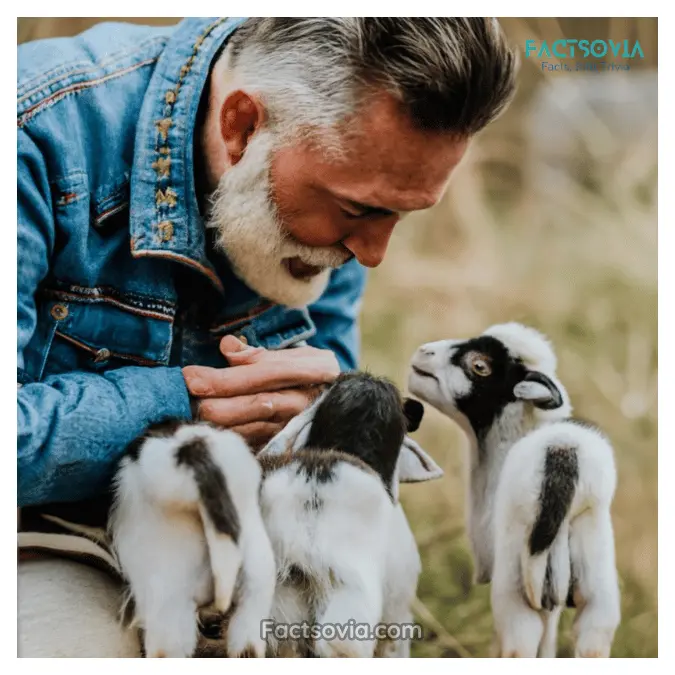
Young Goats
As kids grow, their care requirements change. Wean kids at 8-12 weeks old. Provide young goats a formulated kid-grower feed until one year old. Watch for parasites and supplement with probiotics at weaning. Handle frequently.
Adult Goats
Adult pygmy goats need a balanced diet with ample roughage. Give annual vaccines and regular dewormers. Watch for obesity and hoof overgrowth. Groom and handle them daily.
Senior Goats
Elderly goats benefit from softer, easier-to-digest feeds. Keep warm in winter and cool in summer. Manage arthritis pain. Clean soiled areas to prevent infection. Give extra attention and affection.
The Joys and Challenges of Pygmy Goat Ownership
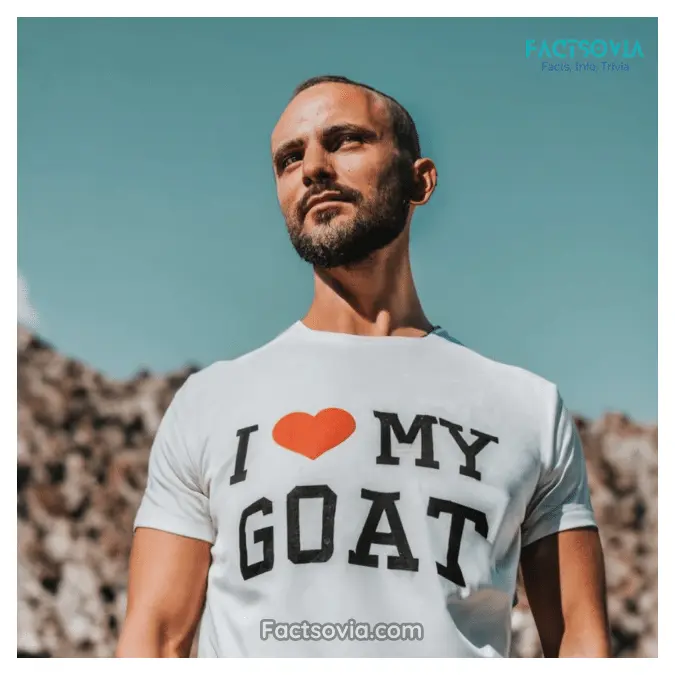
Sharing your life with pygmy goats can bring immense joy. Their playful antics and friendly personalities make them delightful companions. However, their long lifespans also come with challenges.
The Good
- Fun-loving, social nature
- Intelligent and trainable
- Minimal space requirements
- Quiet bleats and calls
- Adaptable to confined spaces
- Low-maintenance care
The Bad
- Require dedication for 15+ years
- Prone to obesity if overfed
- Can be noisy or destructive if bored
- Susceptible to parasite infestation
- May exhibit aggression during the rut
- Prone to arthritis in old age
With proper expectations, preparations, and care, the joys certainly outweigh the challenges of living with pygmy goats for the long haul. Their lasting affection and charm make the efforts worthwhile.
In Summary…
Pygmy goats, when given optimal housing, nutrition, parasite control, exercise, socialization, and regular veterinary attention, can delightfully journey through their late teens and even into their early twenties.
Their long lifespan means a commitment but also allows many years of companionship and joy. By providing attentive daily care and a safe environment, pygmy goat owners enable these endearing mini goats to thrive across their long lifespans.
Amazon and the Amazon logo are trademarks of Amazon.com, Inc, or its affiliates.
